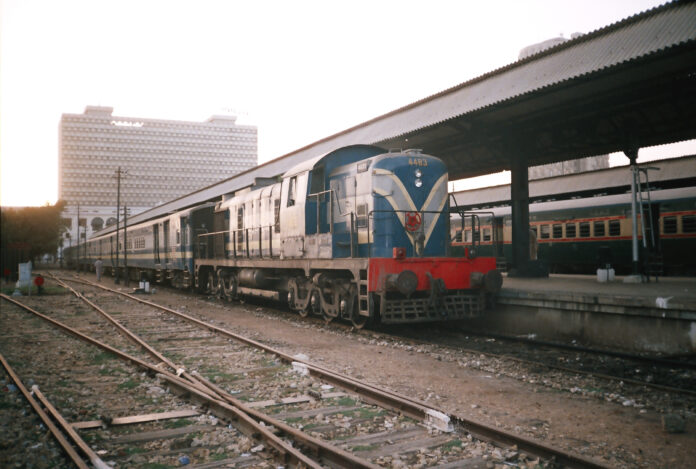ISLAMABAD: After over two decades of closure, the work for the revival of the 43-km long world-class Karachi Circular Railway (KCR) project is scheduled to start next month.
A meeting was held at the Ministry of Planning and Development on Wednesday in which it was concluded that the feasibility study of the KCR project is on track as per the timeline and will be completed by the end of August. Federal Minister for Planning, Development, and Special Initiatives Asad Umar, Railways Minister Azam Khan Swati, secretaries of Planning and Railways, the Chief Executive Officer of the Public-Private Partnership Authority and senior officials of the two ministries attended the meeting. Asad Umar directed the railway authorities to ensure that the ground-breaking takes place in September 2021.
Keeping in view the importance of the KCR flagship initiative of the government, which should be a modern urban rail-based mass transit project, the meeting presided over by Planning and Development Minister Asad Umer, decided that a separate project be prepared for the civil structure of KCR for completing the project on a fast track basis. The PC-1 for civil structures must be brought for approval and subsequent funding through the Public Sector Development Programme at the earliest.
The minister also mentioned that simultaneous work on the Pakistan People’s Party (PPP) components of KCR will result in months of time-saving and completion of the project. So, the Railway shall expedite the consultation with P3A.
Moreover, during the meeting, important issues related to the freight corridor were discussed and reviewed. While discussing Freight Corridor project from Keamari / KPT to Pipri Marshalling Yard which envisages construction/ dualization/ up-gradation of 50-km dedicated freight corridor from Karachi Port to Pipri and includes the development of an Inland Container Depot/ Marshalling Yard at Pipri. The plan has been submitted to the PPP Authority for its approval.
Asad Umar directed that the corridor must be designed to optimize the level-of-service outcome.
Historically, KCR originally started in 1964 and was the main means for transportation used by the Karachiites as approximately six million people travelled on it in a year. However, the railway ceased its operations in 1999 after it suffered huge losses.
According to the estimates made by the Japanese International Cooperation Agency (Jica), the total sum of the revival of KCR costs approximately $2.6 billion excluding taxes and duties.
The KCR is expected to hold carry on an average of 700,000 passengers on 246 trains daily when completed. Additionally, the project is expected to facilitate 40 per cent of the cargo meant to be transported upcountry. The project is crucial for the socio-economic well-being of the people of Karachi.




